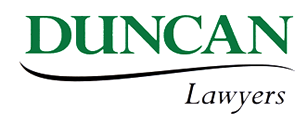Governance Lexicon
This is our list of governance terms. The emphasis is on government entities and regulatory issues. See also our Legislative lexicon and our Universities lexicon.
Accountable authority: A term used to describe the person who is responsible for compliance with specified “duties” set out in the Commonwealth Public Governance, Performance and Accountabilty Act 2013. For a government department the “accountable authority” is the department’s secretary (section 12 of that Act).
Deliberative democracy: A form of democracy in which deliberation is central to decision making. It holds that authentic deliberation, not mere voting, is the primary source of legitimacy for a democratic decision.
Fraud control plan: A Commonwealth accountable authority is required to develop and implement a fraud control plan after completing a fraud risk assessment. First assess, then control. [section 10 of the Public Governance, Performance and Accountability Rule 2014]. Compare and contrast: risk management plans, which are prepared by the Asian Development Bank following the identification of governance risks. [ADB Guidance for Implementing GACAP II , page 16].
Fraud risk assessment: A Commonwealth accountable authority is required to conduct regular fraud risk assessments. [section 10 of the Public Governance, Performance and Accountability Rule 2014].
Policies: Are policies and legislation like oil and water? Do Acts have primacy over policies? Well they do, but sometimes the distinction is not at all clear. Under section 21 of the Commonwealth Public Governance, Performance and Accountabilty Act 2013 a non-statutory Commonwealth entity must be governed in a way that “is not inconsistent with the policies of the Australian Government.” No need for legislation there, it seems.
Regulated community: Those who are regulated (seriously!). The Australian Government’s Department of Finance Regulatory Reform website reports that the Australian Skills Quality Authority has an extensive “regulated community” which includes about 3,700 training providers.
Regulatory tools: The actions available to a regulator to achieve desired outcomes. Example: A regulator might choose to issue court proceedings in respect of severe misconduct by a member of the regulated community. In doing so it takes some risk - the action might fail for want of evidence, or the court might impose a penalty which does not align with the regulator’s assessment of the severity of the misbehaviour.
